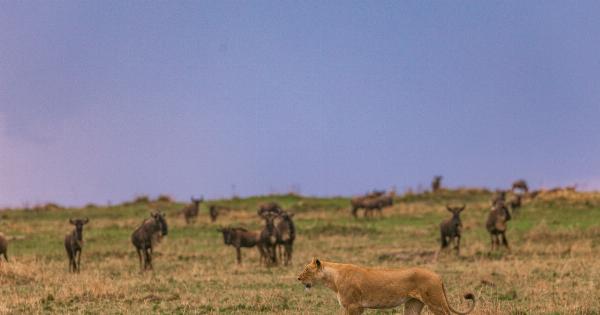Milk has been hailed as a nutritious and essential part of our diet from an early age. It is often thought of as a wholesome beverage that provides us with calcium, vitamins, and minerals.
Many societies around the world consider it a staple, and it is heavily marketed as such. However, there is a growing concern about the negative effects of milk consumption on our health, the environment, and animal welfare.
In this article, we will explore the dark side of milk consumption and the reasons why it may not be as beneficial as we once thought.
The Myth of Calcium
One of the key reasons why milk is promoted is its calcium content. It is often believed that milk is essential for bone health and the prevention of osteoporosis.
While it is true that milk contains calcium, studies have shown that consuming dairy does not necessarily lead to stronger bones. In fact, some research suggests that excessive milk consumption may increase the risk of fractures and even osteoporosis. The high levels of animal protein present in milk cause our bodies to excrete more calcium, offsetting any potential benefits.
Lactose Intolerance and Digestive Issues
Lactose intolerance is a common problem faced by many individuals. It occurs when the body does not produce enough lactase, the enzyme needed to digest lactose, the sugar found in milk.
Symptoms of lactose intolerance include bloating, gas, diarrhea, and abdominal pain. The prevalence of lactose intolerance varies across different populations, with some ethnicities being more affected than others. Consuming milk products can cause discomfort and digestive issues for those who are lactose intolerant.
Allergies and Sensitivities
Milk allergy is another concern associated with dairy consumption. It is one of the most common childhood food allergies, and while many children outgrow this allergy, some individuals continue to be allergic to milk throughout their lives.
Allergic reactions to milk can range from mild symptoms like hives and stomach cramps to severe anaphylaxis, a life-threatening reaction that requires immediate medical attention. Even in individuals without a diagnosed milk allergy, milk proteins can still cause sensitivities that lead to skin problems, respiratory issues, and gastrointestinal distress.
Hormones and Antibiotics
Cows are often given hormones and antibiotics to increase milk production and prevent diseases. These substances can find their way into the milk we consume.
The use of growth hormones, such as recombinant bovine growth hormone (rBGH) or recombinant bovine somatotropin (rBST), is a common practice in the dairy industry. These hormones can have negative effects on our health, including potential hormone disruption and increased risk of certain cancers.
Additionally, the overuse of antibiotics in dairy farming contributes to the growing problem of antibiotic resistance, reducing the effectiveness of crucial medications for humans.
Environmental Impact
The dairy industry’s impact on the environment is significant. It is a major contributor to greenhouse gas emissions, deforestation, and water pollution. The production of milk requires vast amounts of water, land, and energy resources.
The waste generated by dairy farms, such as manure, contributes to water contamination and can harm local ecosystems. Additionally, the expansion of dairy farming leads to deforestation as more land is needed to raise cattle and grow animal feed crops, further threatening our environment and biodiversity.
Animal Welfare
Concerns about animal welfare in the dairy industry cannot be ignored. Cows in intensive dairy farming systems are often subjected to cruel practices.
They are confined in cramped spaces, their natural behaviors are restricted, and they are frequently exposed to stressors. The constant cycle of impregnation, separation from their calves, and repeated milking takes a toll on the physical and emotional well-being of these animals.
As consumers, our milk consumption indirectly supports these practices and contributes to the suffering of dairy cows.
Alternatives to Milk
With the growing awareness of the negative aspects of milk consumption, many individuals are turning to alternatives. Plant-based milk options, such as soy milk, almond milk, and oat milk, have gained popularity.
These alternatives provide essential nutrients without the potential drawbacks of dairy milk. They are often fortified with calcium and other vitamins, making them suitable substitutes for those concerned about their bone health.
These plant-based options are also suitable for individuals with lactose intolerance or milk allergies, enabling them to enjoy a variety of beverages without discomfort or health risks.
Evaluating Your Choices
When it comes to our dietary choices, it is essential to be informed and critically evaluate the information available.
While milk has traditionally been portrayed as a vital part of a healthy diet, it is essential to consider the potential negative effects on our health, the environment, and animal welfare. Exploring alternative options can provide a well-rounded perspective on the complexity of milk consumption and allow for more conscious decisions regarding our dietary habits.






























